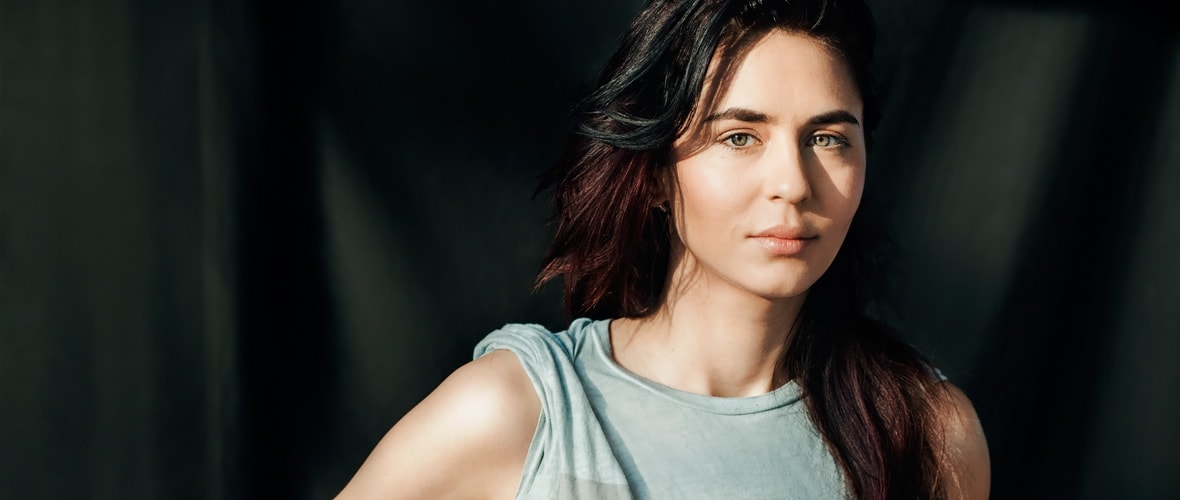Your film has already been a great success – it received three awards at the 42nd Gdynia Film Festival. Quite recently, you’ve received the Polityka's Passport award in Film. What is it that you find to be the most satisfying about your film “Tower. A Bright Day”?
I’m glad that absolutely none of my colleagues left the set unhappy or troubled. That I directed the film as me – I didn’t pretend to be anyone else. That I was curious until the end, and also that fear didn’t influence my decisions.
To what extent is your film about a crisis in spirituality? Is the Church in Poland addressing this situation in any way now?
Spirituality comes from one-shot experiences. This is its greatest advantage over religion. Religion is more about replicating other people’s values, a system. Today, religion is limited to the functioning of the Institution. To some extent, everyone has some spiritual needs. The Catholic Church does not go over these needs. Besides, I think that no other religion does that, as religions are in principle linked to the functioning of a system. Everything starts to be lined with fear and there are no rituals that could save us from these fears.
Basically, we know that it’s easier to handle panic-stricken people. The priest, one of the characters in the film, is not evil, but he lacks “connection”. He casts off under a force he doesn’t understand. He can’t keep up the metaphysical pace.
In “Tower. A Bright Day” you are referring to genre movies. What is is that you find particularly attractive in this form of artistic expression?
I’m more interested in what movies do than in what they are about. I understand films as some sort of instruments allowing to perform certain actions on the viewer. Film is a form of ritual, because you’re a different person when you start watching it, and you become someone else when you finish. References to genre movies are interesting only on a technical, say, even primitive level. Working on a film reminds me of a strategy game because it’s so very difficult to implement the elements of genre movies and at the same time avoid some commonplace solutions. On the other hand, however, I love genres. I always dreamed of making a film that makes a one-eighty turn into another genre. Just out of curiosity.
What made you choose the specific locations for shooting the scenes?
I’m a witch from Upper Silesia. The nature of this region – as perhaps the rest of Poland – isn’t spectacular, but I’m touched by its modesty. We don’t have sequoia trees or the Dettifoss waterfall. It’s the truth. I admire the modesty of Polish landscapes.For I also like the saying that “to see a miracle, one needs to have appropriate eyes”.
What was the biggest challenge in the making of the film?
It was challenging not to be guided by fear and not to judge. Being able to follow one’s gut is a challenge because we’re told not to every step of the way. Life is the art of becoming who we are.
Does having recognition and awards bring new challenges for you?
I’m excited about the awards; they will allow the film to reach audiences. I’m also happy because of the people who worked so hard to make it. There’s no doubt that it’s their movie too. Awards are nice, but I’ve already sorted out in my head that they also entail certain risks – you may succumb to the illusion that you’ve got somewhere and begin to fear losing it. I don’t want to be afraid. Your freedom is measured by how much you didn’t get attached. I practice making films. I’m not a moviemaker. And if I begin to be afraid, I’ll stop doing it.
Can you tell us already what will your next project be about?
I’m really into the subject of the widely understood crisis – geopolitical, but mainly ecological. We’ve reached the stage of industrial overproduction which, sooner or later, will come to an end. People don’t realize what climate migration is or that the period of great famine is coming. This is also me turning towards genre movies. An individual story in the film shows problems at macro-level. I really like how I came up with the story, and I have faith in this film. I believe in a thing called the “delicate balance of terror”.
